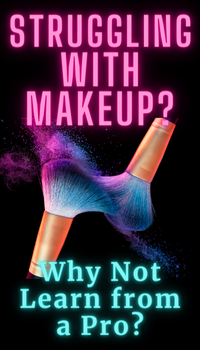Perpetual Change — Catrina Daimon Lee
Any working musician in this country has probably, from time to time, found a lot to complain about. Crummy, low paying gigs, inattentive audiences, breaking down in the middle of nowhere en-route to a gig, band member drama . . . the list can go on and on. Seasoned players who have been around for a while take it all as part of the territory . . . you have to or you either quit or go nuts.
Even on a limited, semi-professional basis, (which is where most transgender musicians find themselves), we at least get the opportunity to do what we love. Imagine, then, that you have limited resources, live in a country that often looks down on trans people, and your genre’ of choice is jazz. By itself, that sentence sounds like a secondary definition for the word “struggle.”
Catrina Daimon Lee, who lives in Singapore, is an incredibly accomplished player and composer who also has explored the boundaries of music theory with what she calls the Grand Unified Field Theory of Western Harmony.
Recordings by Lee are hard to find. The Book Of Worlds (2009), has been remastered (The Book of Worlds is available online for listening and download at bandcamp.com); On The Practice of Stopping Time (2009), which Lee describes as an “. . .extended length meditation pieces in Just Intonation, solely created with virtual instrumentation”; Songs From The Breastbone Drum (2010), featured on AllAboutJazz.com; and Virtual Music Tunes, recorded in 2011 and soon to be released. The last two albums are available online.
She is Chinese Singaporean by birth, and like most trans people, knew early on that something was different. Culturally and through her family, “real sons” are the norm. “I started dressing en femme in my teen years privately, but no one knew or suspected I was actually deeply, deeply transgendered in my mind,” she said. “I always despised being male. There were no inherent advantages in being male, as far as I was concerned.”
Musically, her earlier influences drew from wide variety of sources.
“Everything from folk and classical music (here we’re talking in Occidental music terms), to jazz-rock fusion, ethnic music form the Far East, especially India, but not of the ‘pop’ variety,” she said. “I think of my own music as jazz fusion based, although I am aware that I draw influences from post minimalists like Steve Reich, and post-modern/pan-global classical music like Lou Harrison and Somei Satoh, and even Ravel and Debussy.”
 Her musical journey has also been inspired by artists as diverse as Led Zeppelin, Mike Oldfield, Pink Floyd, Return To Forever and the Mahavishnu Orchestra.
Her musical journey has also been inspired by artists as diverse as Led Zeppelin, Mike Oldfield, Pink Floyd, Return To Forever and the Mahavishnu Orchestra.
“But by the time my hunger for more spirit in my music and in my life sped me on to discover music like Keith Jarrett, Pat Metheny, and 1970s Oregon, I was a boy who could not put a band together to save my life,” Lee said. “If I went to find ‘jazz’ musicians, they wanted to play ‘cari makan’ (the local patois for ‘make money music’), Funky Town music, and insipid, and long before now, outdated and campy jazz-pop. The rock guys did not have the vocabulary to handle even the simple stuff I was looking to develop. It was a stretch from Funky Town to odd-metered, poly-modal jazz rock.”
It’s also not much of a stretch to imagine that being dedicated to such a genré has been more of a labor of love than a money making endeavor.
“At 48 years old, and with only 30 years of trying to get a gig anywhere, I have not gotten one to date . . . ever. I have played on the streets . . . literally, for ten years.
 “The opportunities for trained musicians here in Singapore are about the same as anywhere else, I suppose, New York included. You work hard, you practice all your life . . . you sacrifice all you have, you are a slave, a devotee in the temple of music, and if you are well connected or come from a rich and powerful enough family, you can gig here. You can have a career backing up tone deaf pop singers. Singapore prides itself on its policy of choosing its work applicants in any industry based on ‘mediocrity’ . . . oops, I mean ‘meritocracy.’ Just like in any other free country.
“The opportunities for trained musicians here in Singapore are about the same as anywhere else, I suppose, New York included. You work hard, you practice all your life . . . you sacrifice all you have, you are a slave, a devotee in the temple of music, and if you are well connected or come from a rich and powerful enough family, you can gig here. You can have a career backing up tone deaf pop singers. Singapore prides itself on its policy of choosing its work applicants in any industry based on ‘mediocrity’ . . . oops, I mean ‘meritocracy.’ Just like in any other free country.
“In the Singapore of the new millennia, there is much noise about ‘nurturing the creative and artistic’ in its youth, so I guess the grass is might green if you are between the ages of 15-25. You stand to get your fifteen minutes complete with corporate backing if your band is jangly-pop and loud enough. As usual, the rich kid artists and well connected to government officials types will remain as the custodian of the arts community in perpetuity. Doesn’t that work the same everywhere? I am most certain that it does. The music industry in Singapore is not much different. You have a kind of hierarchy of already established artists who will never be out of work. I am not say saying that the music and arts elite have no talented persons in it…I am saying they are elite despite having talent. And some do not. I was told that essentially, if someone higher up does not like you for any reason, you simply cannot find any work in the field. I have personally seen a great classically trained double bass player have to busk on the street, singing pop songs and strumming an old folk guitar because he is an outspoken spiritual seeker, and a few key players in the elite have banned him for life.”
According to Lee, the way that transgendered people are treated follows the same trend. If you are from a wealthy background, you’re accepted. While there are shops with TG staff, much like anywhere else, situations can vary.
“For the most part, people leave me alone,” she said. “I do not get daily hecklers and verbal abuse when I go on the streets en femme. I am courteous and kind, or try to be, and usually like everyone else LGBT or straight, get jostled and tossed about in the crowd. Nothing new there.”
Lee has also recently started work on a fifth album, which will be for acoustic guitar and ensemble settings. “The compositional stage is very important to me,” she said.
“It’s going to be the focus for this album. Most of what I currently write are almost entire through composed, with very little jazz improvisation, unlike, say, the first and third album I have done. This is what is important to me, to create worlds with this music. To shatter hearts with love. To ignite minds. To inspire inner flights of transcendence and beauty. I guess it might sound pompous to some unimaginative pole, but this is the only thing that is keeping me alive and relatively sane in this tragic and terrible world. Other than this music, I really do not see why I was even born.”
 Other than the actually music itself, Lee’s Grand Unified Field Of Harmony is the other grand motivating force in her life right now.
Other than the actually music itself, Lee’s Grand Unified Field Of Harmony is the other grand motivating force in her life right now.
“Basically, it is a breakthrough, a thorough grounding in Western Harmonic practice. It can be both diagnostic and generative. I believe with no doubt whatsoever that my discovery will utterly alter the way musicologists, teachers, and musicians perceive musical harmony and also melody in its structural sense. For essentially, when we speak of harmony, we also speak of melody, and that is already two-thirds of musical structure.”
Lee is a firm believer in reaping the consequences of our actions, especially for society as a whole, regardless of which country one lives in.
“We as a people are fed only lies and half truths, un-evolved music, literature and art. How is it that music artists who inspire in us only our drunkenness, stupidities and utter baseness are raking in millions of dollars? I was born to evolve, to love and be loved, to inspire, to express my true nature. Being transgender4ed is not my gimmick . . . it is who I am. Being an expression of divinity is who I am.”
You can find Catrina Daimon Lee’s music at www.IMRADIO.com and www.rockethub.com/projects/2067-why-should-I-care.
Category: Music












I have had an overly turbulent year, Pam. I had lost so much. I am grateful I am still alive, but not able to express who I am, or create music. Not even rent money is possible now.
I am grateful for the world to come. I do not seek fame, just love of music, and enough to get by – however impossible these seem.
Thank you for your kind article. I have lost my email account. I think. I don t know, I have not checked it in so long…